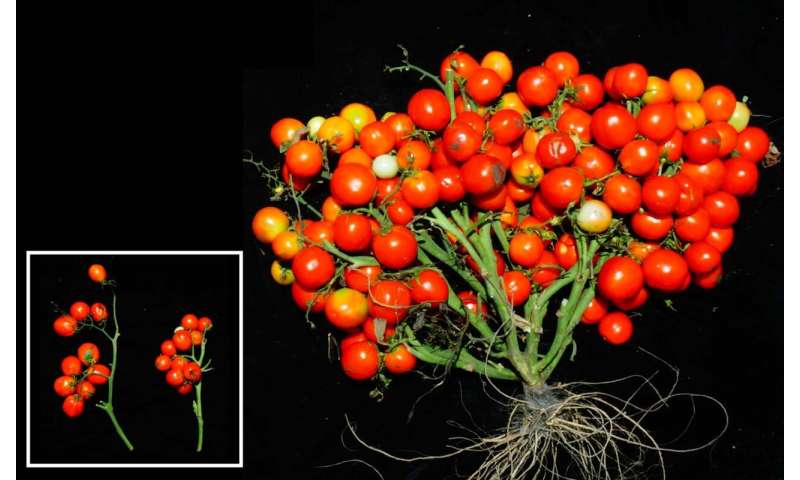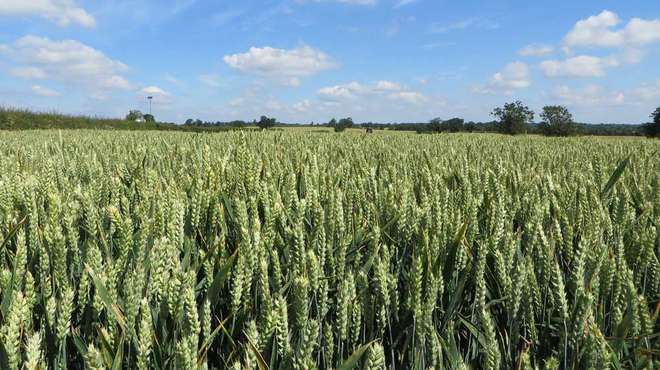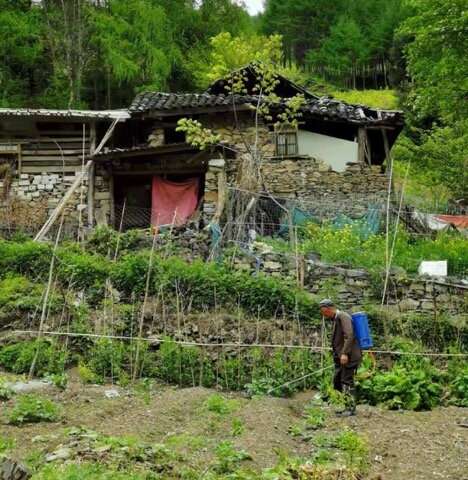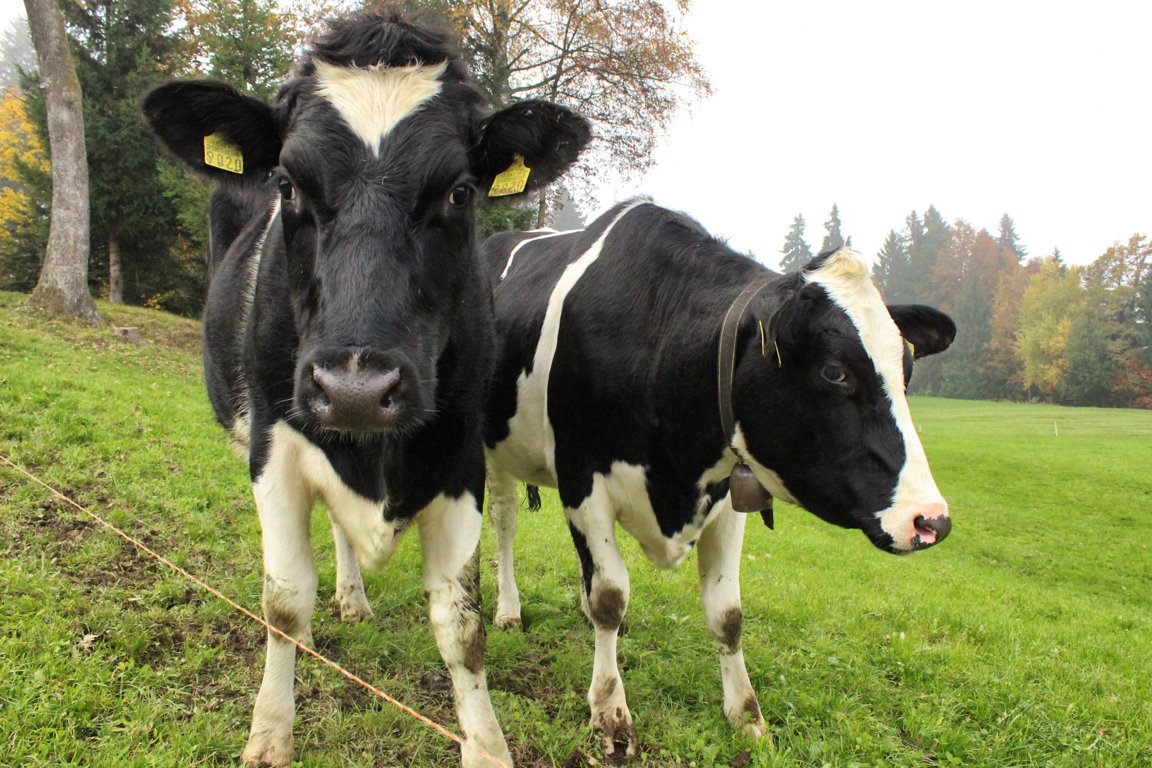Contrary to the general belief that
organically produced crops cannot match with the pace of our growing population
toward sustainable food security, a research finding has confirmed that cowpea
now got an organic pesticide to combat the devastating disease impeding its
commercial production. This was contained in a number 8 monograph, 2018 of the
best practices in Organic Agriculture production system.
Foodfarmnewstv
FADAMA 111 PROJECT ADDITIONAL FINANCING
Bestchange
Search This Blog
Labels
- News (459)
- Images speak (42)
- Press Release (39)
- livestock (31)
- FACAN (29)
- Editorial (25)
- GM (20)
- Seed (20)
- Biotechnology (19)
- wheat (16)
- Research (15)
- Cassava (14)
- AFAN (13)
- Global news (12)
- Special Report (12)
- Rice (11)
- Image Speaks (9)
- Maize (9)
- Soil (9)
- Yam (8)
- Bt cowpea (7)
- Coconut (7)
- Fertilizer (7)
- Cocoa (6)
- Disease (6)
- Ginger (6)
- Potato (6)
- World Soil Day (6)
- Animals (5)
- Apple (5)
- Oil Palm (5)
- Tomatoe (5)
- new (5)
- Cashew (4)
- Climate change (4)
- Fish (4)
- NCARD (4)
- Organic agric (4)
- World Food Day (4)
- Interview (3)
- National Council meeting on Agriculture. (3)
- Plant & genes (3)
- Plant genes (3)
- Project (3)
- Sesame (3)
- Shea butter (3)
- AI Research on Agriculture (2)
- Achia (2)
- African Cherry (2)
- Communique (2)
- Cotton (2)
- Extension services (2)
- Gene editing (2)
- HAPPY NEW YEAR (2)
- Horticulture (2)
- Insurance (2)
- Kenaf (2)
- Opinion (2)
- Sorghum (2)
- Sunflower (2)
- Tomato (2)
- Turmeric (2)
- bt cotton (2)
- seasons greetings (2)
- Artemesia (1)
- Biodiversity (1)
- Birds (1)
- Carrot (1)
- Discovery (1)
- Donkey (1)
- Facts sheets (1)
- Flash Flood (1)
- GES (1)
- GMO Rice (1)
- Garlic (1)
- Genetic (1)
- Groundnut (1)
- Jute bag (1)
- Locust bean (1)
- MERRY XMAS (1)
- Machinery (1)
- Mango (1)
- Milk (1)
- Okra (1)
- Post-harvest losses/ Food Waste (1)
- Presentation (1)
- Seaweed (1)
- Senate (1)
- Soybean (1)
- Tumeria (1)
- Walnut (1)
- flood (1)
- fruits (1)
- millet (1)
- water (1)
Total Pageviews
SPONSORED

Nigerian Institute of Soil Science- NISS
Translate Food Farm News to Hausa, Igbo, Yoruba and over 100 Languages
Latest News
Monday, 6 January 2020
Sunday, 5 January 2020
A new tomato ideal for urban gardens and even outer space
 Farmers could soon be growing tomatoes bunched like grapes in a storage unit, on the roof of a skyscraper, or even in space. That's if a clutch of new gene-edited crops prove as fruitful as the first batch.
Farmers could soon be growing tomatoes bunched like grapes in a storage unit, on the roof of a skyscraper, or even in space. That's if a clutch of new gene-edited crops prove as fruitful as the first batch.Saturday, 4 January 2020
Children allergic to cow's milk smaller and lighter
 Children who are allergic to cow's milk are smaller and weigh less than peers who have allergies to peanuts or tree nuts, and these findings persist into early adolescence.
Children who are allergic to cow's milk are smaller and weigh less than peers who have allergies to peanuts or tree nuts, and these findings persist into early adolescence. Friday, 3 January 2020
AfDB, Ogun State partner on cargo airport for produce
The President of African Development Bank (AfDB), Dr. Akinwunmi
Adesina has promised to support Ogun state government in her drive to upscale
agricultural productivity through the establishment of cargo airport that will
uplift agricultural produce to immediate point of demand outside the country.
Overuse of herbicides costing UK economy £400 million per year
 Scientists from international conservation charity ZSL (Zoological Society of London) have for the first time put an economic figure on the herbicidal resistance of a major agricultural weed that is decimating winter-wheat farms across the UK.
Scientists from international conservation charity ZSL (Zoological Society of London) have for the first time put an economic figure on the herbicidal resistance of a major agricultural weed that is decimating winter-wheat farms across the UK.Thursday, 2 January 2020
Mealworms safely consume toxic additive-containing plastic
 Tiny mealworms may hold part of the solution to our giant plastics problem. Not only are they able to consume various forms of plastic, as previous Stanford research has shown, they can eat Styrofoam containing a common toxic chemical additive and still be safely used as protein-rich feedstock for other animals, according to a new Stanford study published in Environmental Science & Technology.
Tiny mealworms may hold part of the solution to our giant plastics problem. Not only are they able to consume various forms of plastic, as previous Stanford research has shown, they can eat Styrofoam containing a common toxic chemical additive and still be safely used as protein-rich feedstock for other animals, according to a new Stanford study published in Environmental Science & Technology.Conservation's hidden costs take bite out of benefits
 Returning croplands to forests is a sustainability gold standard to mitigate climate change impacts and promote conservation. That is, new research shows, unless you're a poor farmer.
Returning croplands to forests is a sustainability gold standard to mitigate climate change impacts and promote conservation. That is, new research shows, unless you're a poor farmer.Wednesday, 1 January 2020
Mowing urban lawns less intensely increases biodiversity, saves money and reduces pests
Tuesday, 31 December 2019
Stand out from the herd: How cows communicate through their lives
Farmers might finally be able to answer the question: How now brown cow?

Research at the University of Sydney has shown that cows maintain individual voices in a variety of emotional situations.

Research at the University of Sydney has shown that cows maintain individual voices in a variety of emotional situations.
Monday, 30 December 2019
Comparing heirloom and modern wheat effects on gut health
 Amid concerns about gluten sensitivity, increasing numbers of people are avoiding wheat. Most have not been diagnosed with a wheat-related medical condition, yet they seem to feel better when they don't eat gluten-containing foods.
Amid concerns about gluten sensitivity, increasing numbers of people are avoiding wheat. Most have not been diagnosed with a wheat-related medical condition, yet they seem to feel better when they don't eat gluten-containing foods.
Subscribe to:
Posts (Atom)






